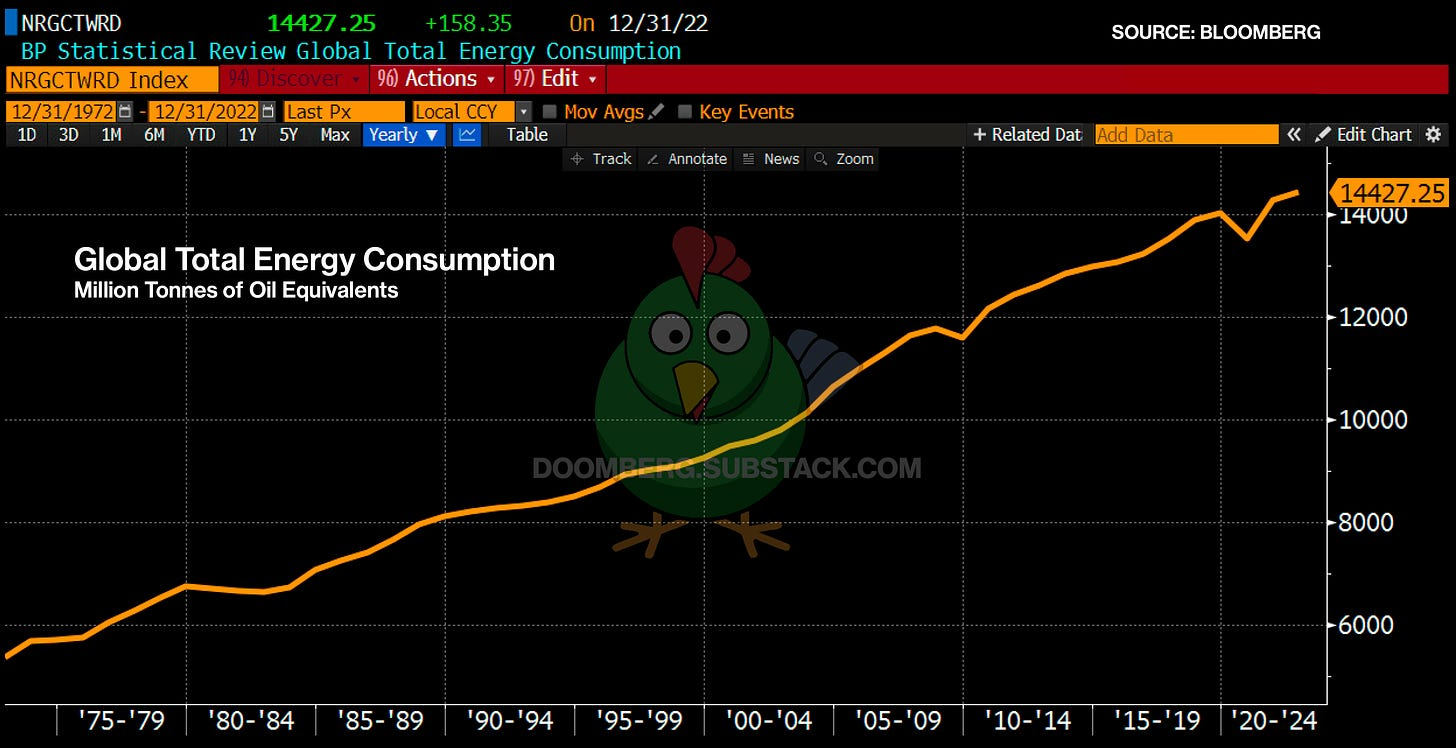Overview: The dollar is mostly consolidating last week's gains. The big news has been on the political front. Thailand's opposition parties dealt the military-led government a powerful blow. But in Turkey, Erdogan staved off a serious challenge and a run-off later this month looks likely, while his party maintained its parliamentary majority. Tensions over arms shipments to Russia have eased between the US and South Africa, giving the rand a boost. The greenback's gains have been pared against the G10 currencies except the yen. The rand and Thai baht are the strongest among emerging market currencies today.
Most of the large Asia Pacific bourses advanced today with the notable exception of Taiwan. Of note Japan's major indices are at their best levels since late 2021. Despite the dramatic 4.1% collapse of the eurozone's industrial output in March, the Stoxx 600 is up by about a third of a percent after eking out a small gain last week. US equity futures are trading with a firmer tone. Benchmark 10-year bond yields are mostly 2-3 bp higher in Europe and the US. That puts the 10-year Treasury yield near 3.48%. Gold is within the pre-weekend range and is trading in around a $6 range on either side of $2014. It held the $2000 level ahead of the weekend. June WTI slipped to $69.40 today before recovering. It peaked last week near $73.90. Ahead of the North American session it has moved back above $70.00.
Asia Pacific
A cacophony of voices express concern about the pace of growth in China, even though growth in the first quarter exceeded expectations. The softness of the CPI (0.1% year-over-year) and the deflation in the PPI (-3.6%) is cast in terms of weak demand. Declining imports fit into the narrative. Chinese officials do not seem to share the sense of urgency and left the benchmark one-year medium-term lending facility (MLF) rate steady at 2.75% with CNY125 bln of lending. That is a about CNY25 bln more than is expiring this month. With large borrowing maturing at the end of next month, there is some speculation that the PBOC could reduce reserve requirements, which would facilitate a smooth process.
Ahead of the G7 summit this coming weekend in Hiroshima, the public approval of the Kishida cabinet fell four percentage points to 41.3%, according to the ANN network. Separately, Prime Minister Kishida is calling for a government and BOJ examination of the sustainability to wage increases. It is a big week for Japanese economic data, which includes Q1 GDP, industrial output trade and April CPI. Meanwhile, strong earnings from three large Japanese banks boosted the Topix Bank Index by nearly 1.4% today. It is risen for six of the past seven weeks. It is at its best level since mid-March. The Topix itself at its highs since September 2021 and the Nikkei last saw these levels in November 2021.
The yen is trading heavily and is lower for the sixth session of the past seven. The greenback reached JPY136.25. There is little resistance ahead of JPY136.75-JPY137.00. Initial support is seen in the JPY135.50-75 area. The Australian dollar was sold sharply in the last two sessions, falling from around $0.6800 to near $0.6635. It is trading inside the pre-weekend range (~$0.6635-$0.6705) as it consolidates. It appears to be stalling in Europe shy of $0.6700, where almost A$800 mln options expire tomorrow. Support is seen by $0.6660 now. Meanwhile, the greenback rose to new two-month highs against the Chinese yuan near CNY6.9655 before dollar sales were seen. The PBOC set the dollar's reference rate at CNY6.9654, tightly against expectations (Bloomberg survey) for CNY6.9657. The market may turn cautious ahead of CNY7.00. Lastly, we note that the two main opposition parties won handily in the Thai parliamentary elections. A coalition still needs to be forged, and with the appointed Senate, a prime minister is still to be chosen. The Thai baht strengthened (~0.70% to lead the region), though local shares were sold (~1.4%).
Europe
Europe's economy stalled in March. Before the weekend, the UK reported its economy unexpectedly contracted by 0.3% in March. Today, the collapse in eurozone industrial output confirms the dismal news from Germany, France, and Italy. The 4.1% month-over-month collapse unwinds the 1.5% gain in Feb and the 1.0% rise in January. Industrial production fell by an average of 0.6% a month in Q4 22 and by 0.1% in Q3. The news stream has deteriorated, and the data surprise models have weakened.
The EC raised its inflation forecasts for the eurozone to 5.8% this year and 2.8% next year (from 5.6% and 2.5%, respectively). That puts its forecasts 0.5% above the ECBs for this year and 0.1% lower for next year. The EC's growth projections were also lifted. 1.1% this year and 1.6% in 2024. This is up from 0.9% and 1.5%, previously. Separately, before the weekend, Fitch affirmed Italy's sovereign debt rating of BBB with a stable outlook. S&P affirmed the same month ago. Moody's weighs in at the end of the week. It has the equivalent rating but a negative outlook.
The euro is consolidating last week's 1.5% decline, its largest loss since last September. It is in a roughly $1.0845-$1.0880 range through the European morning. The market seems to lack near-term conviction. "Buy the dip" strategy seen in recent weeks appears to have broken down, but with the US debt ceiling looming and bank shares under pressure, the market is reluctant to turn bullish on the greenback. Sterling is largely the same story. The pre-weekend low near $1.2445 held and sterling is consolidating below $1.2500. It needs to push above $1.2510-20 to be notable. On the downside, the $1.24 area looks formidable. Lastly, a run-off for Turkey's president looks necessary (May 28) and Erdogan's AKP held control of parliament. The lira's nearly 0.4% decline is the largest in two months. On the other hand, the easing of tensions between the US and South Africa set the rand 1.4% higher today to snap a four-day slide.
America
Halfway through Q2 23, the US economy is demonstrating an unexpected resilience. Some economists have been talking about a recession for more than a year. In fairness, inventory challenges and trade issues have contributed to the difficulty in assessing the underlying signal. The pandemic also messed up seasonal adjustments. Nevertheless, real final sales to domestic private parties are among the best indicators of the underlying signal during most periods. It excludes inventories, trade, and government and rose 2.9% in Q1. Atlanta's Fed GDP tracker sees Q2 headline GDP at 2.7%. It will be updated tomorrow. Job growth is slowing, and weekly initial jobless claims have been rising gradually, but from the Fed's point of view, it has not cooled sufficiently. When Fed officials submit their forecasts to be compiled into next month's Summary of Economic Projections, the incoming data suggest an upward revision to the median growth forecast (0.4%) and a lower forecast for unemployment (4.5%).
Meanwhile, the debt ceiling remains unresolved. Neither side can be confident that the public will not blame them and express their disapproval in next year's national election. At the same time, both sides seem incentivized to take it to the brink to demonstrate their resolve to their respective constituent. New meetings between President Biden and congressional leaders are now scheduled for tomorrow. It was initially planned the end of last week. Many pixels have been devoted to what happens after the X-date, but probably more is needed for the other side: if some last-minute deal is struck, as has happened repeatedly since the political dance began. T-bill issuance would swell, and the Treasury's general account (TGA) would be replenished. Both pull in the same direction--tightening financial conditions. While this fiscal drama plays out, US bank shares remain under pressure. According to last week's data, emergency borrowing from the Federal Reserve rose, and bank deposits fell. However, the use of the new Bank Term Funding Program for a year, and this is a maturity transformation mechanism and on favorable terms, which also adds liquidity (notional value, not market price). The deposit walk, $13.8 bln last week, was at large banks, not regional banks, and the previous week's decline was accounted for by foreign banks. Granting protection for transaction accounts, as was the case during the Great Financial Crisis, might be helpful, but now requires congressional approval, and Congress seems distracted.
The US dollar initially extended last week's gains against the Canadian dollar to almost CAD1.3570 before reversing lower. It approached CAD1.35, where they are options for about $670 mln that expire today. Chart support is seen slightly below there, but a break of CAD1.3460-70 is needed to signal anything important from a technical perspective, and the 200-day moving average is at the lower end of that range. Wildfires in Alberta will be an economic drag. The Mexican peso remains in last Thursday's range (~MXN17.5350-MXN17.70). The attractive interest rate pick-up means still rewards the peso bulls even during periods of consolidation. The central bank meets this week, and many look for it to pause with its overnight rate target at 11.25% and CPI at 6.25%.
Tags: #USD,China,Currency Movement,EMU,Featured,Japan,newsletter,Thailand,Turkey,US























